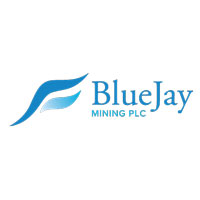FinnAust Ming PLC LON:FAM CEO Roderick McIllree said, “Pituffik continues to exceed our expectations. After being on site for two weeks, I’m pleased with the progress and can see positive indications that we will uncover something of significant scale at this very pure titanium deposit in Greenland.
“Our field programme is being managed by a senior researcher at the Geological Survey of Greenland and Denmark (‘GEUS’) performing exactly as one would expect from such a well-recognised institution. I believe SRK gained a much better perspective of the Project from their visit to site and I look forward to working with them to deliver a maiden resource for the Project.
“We will provide further updates as we continue unlocking the inherent value we believe this Project holds. Updates are expected on metallurgical advances in the very near future.”
FinnAust Mining plc, the AIM and FSE listed company with projects in Greenland, Finland and Austria, has told DirectorsTalk that the 2016 field season at the Pituffik Titanium Project (‘Pituffik’ or ‘the Project’) is progressing well.
The 2016 programme in Greenland has several aspects to it as described in the summary below. Mainly, the Company is focused on defining both the grade and volume characteristics of Pituffik via the production of a JORC code compliant resource, with a particular emphasis on defining optimal “wet mining” areas. This is in line with the Company’s strategy to undertake a “proof of concept” bulk sampling programme in 2017.
Overview:
— Planned programme completed, initial findings supporting the Company’s belief that Pituffik represents a globally significant titanium project
o Extensive trenching over main project areas has identified large volumes of ilmenite rich sand across many square kilometres
o Ground penetrating radar has identified buried layers of what is expected to be high concentrations of heavy minerals
o 260 holes completed on raised beach targets to date – all holes show significant horizons of ilmenite rich sands validating the production potential of these areas
o 150 offshore vibracore holes (designed to penetrate up to 3m) completed to date, drilled from support boat
o Reduced penetration in the Moriusaq Bay area by smaller second vibracore unit due to almost pure layers of ilmenite bearing sediments
-- Large metallurgical sample en-route to process consultants
— Currently undertaking expanded programme due to completing planned program early – including infill drilling
— SRK Exploration Services (‘SRK’) competent person site visit completed, results will generate a JORC code compliant resource
— Environmental programme and initial baseline study finished with results, which are in line with expectations, being compiled ahead of submission of application for exploitation licence in Q1 2017
Further Information
Pituffik is located within the broader “Thule black sand province” in North West Greenland, comprising coastlines several hundred kilometres long that contain both ilmenite and magnetite-rich regions. Within these regions are localised higher concentrations of ilmenite, and it is these areas that FinnAust is targeting.
The Company has focused its attention on three primary target types along more than 30km of prospective coastline. These target areas are broken down into Raised, Active, and Drowned beach targets. The Company has identified two key project areas for focus moving forward, Moriusaq and Interlak. Moriusaq is most advanced and has returned the highest ilmenite grades to date, whilst Interlak offers the largest volume of heavy mineral sands with grade upside potential.
The 2016 field season, designed by GEUS in consultation with SRK, is mostly complete. The onset of favourable weather initially allowed the rapid deployment of personnel and commencement of operations.
Auger drilling, planned for the raised and active beaches, is proving an excellent tool to test the extensive near surface targets. Ilmenite rich sands have been intersected in all targets areas to date. These results will define deeper drilling targets for future work as is common in this type of coastal system.
In total to date 260 auger holes have been completed with more expected before season end. Thick Ilmenite rich sand has been intersected in every auger hole at Moriusaq (see figure 1 – See PDF link). Given that the programme was advanced earlier than expected, the Company expanded its programme to include infill drilling focused on the regional extent of raised beaches between Moriusaq and Interlak (+/-15km). As can be seen in both figure 1 and figure 2 (see PDF link) these raised beaches display significant horizons of ilmenite rich sands and remain a focus of the Company.
Figure 1: Auger sample from raised beach (black material is ilmenite rich sediments) – See PDF link
Extensive trenching and pitting has been completed on the very large-scale raised beaches at Interlak. Interlak comprises three target types with one additional very large tonnage delta target.
Figure 2: Initial trenching demonstrating ilmenite depositional models. Black banding is almost pure ilmenite; total depth of ilmenite bearing sediments is unknown. – See PDF link
Vibracoring (or vibrocoring) is a technology and a technique for collecting core samples of underwater sediments and wetland soils. Vibracore units have been deployed in both the “near shore” Moriusaq Bay as well as shallow marine areas immediately adjacent to the active beach zones. The smaller pontoon mounted vessel operating in Moriusaq Bay encountered reduced penetration due to almost pure & compacted layers of ilmenite bearing sediments and cobble.
An initial programme of 165 vibracore holes has been completed from the MV Kisaq vessel with interesting results obtained over almost all of the shallow marine areas targeted. Figures 3 and 4 (see PDF link) show typical black sand accumulations obtained from the larger vibracore unit. The Kisaq vessel is now tasked with reconnaissance holes around the Interlak area including sampling the Interlak delta.


